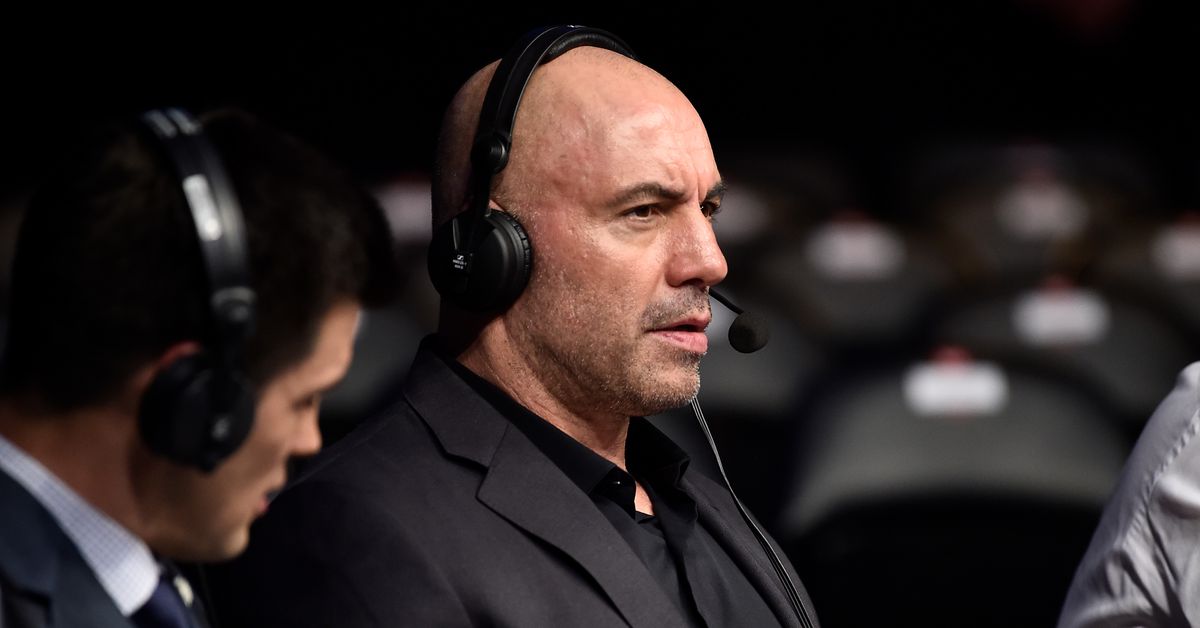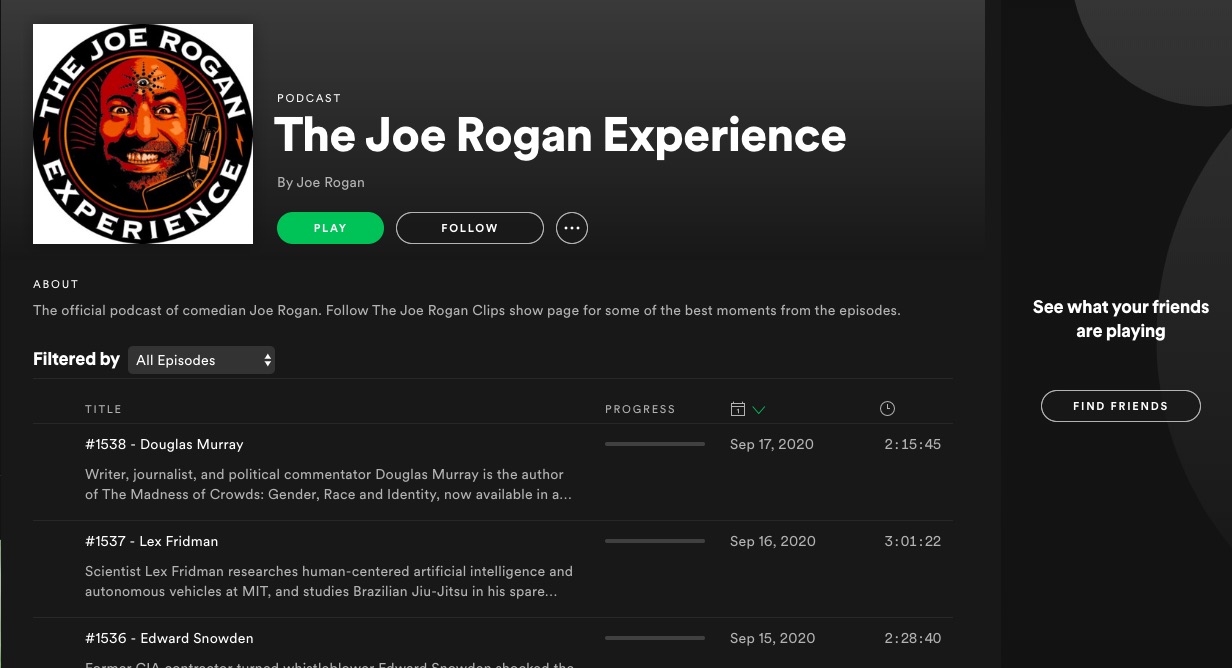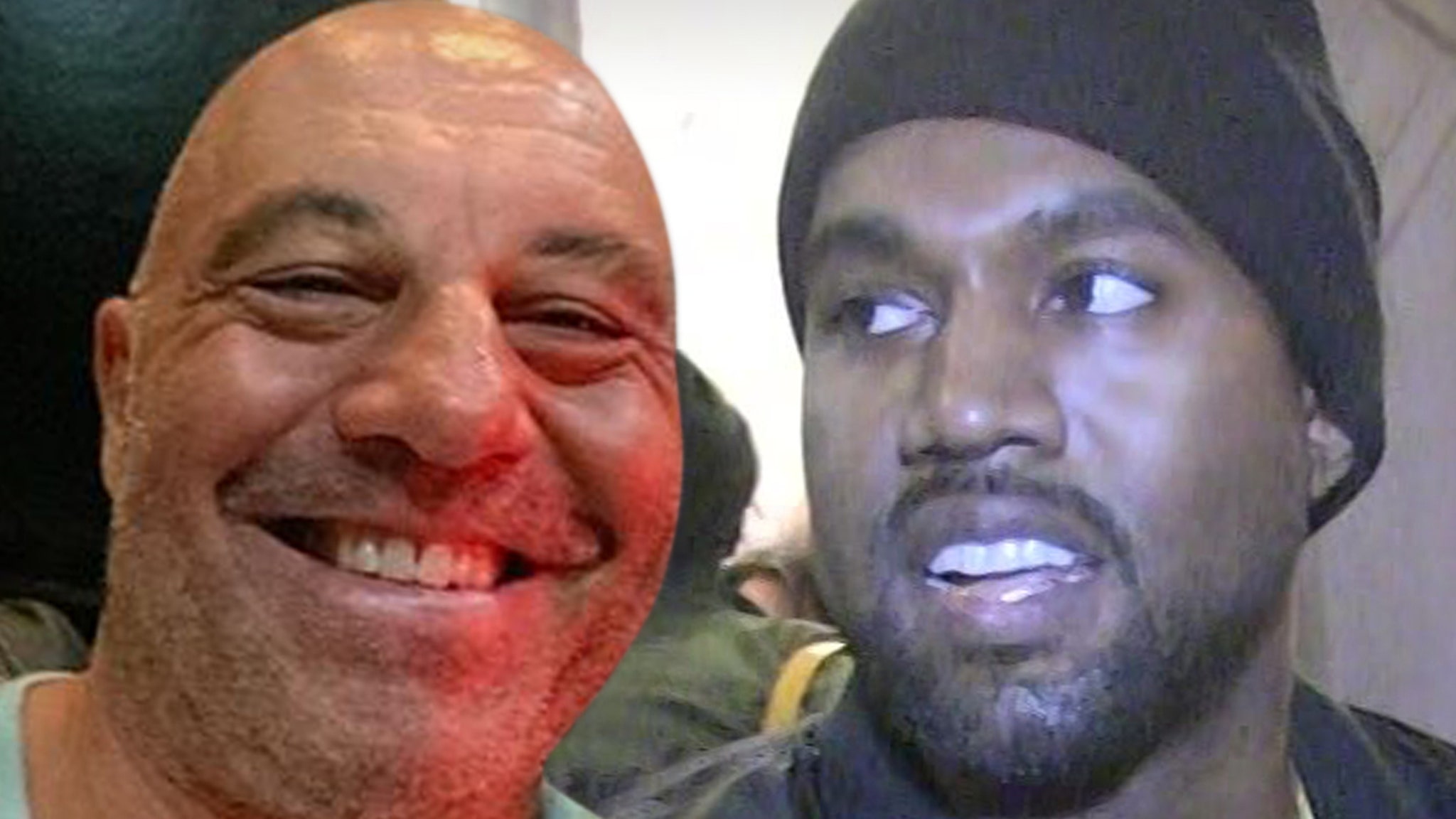But but he has black people on his podcast thoughFalse commentary on left wing crimes but no mention of the right wing militias and rampant racist animals in Portland or Oregon.
Smh
But but he has black people on his podcast thoughFalse commentary on left wing crimes but no mention of the right wing militias and rampant racist animals in Portland or Oregon.
Joe is dumb as rocks...
He memorized a whole shit load of facts
And factoids to give the illusion he has smarts..but from from it.
Now what he does have is a strong as fuck hustle game...
He tries and pretty much mastered the fine art of hiding his racism...
But he can't help but expose himself through code words...
Antifa is the new way of saying ni663r
Loving trader...
Being against protesters is silent support...
Of the silent "black" lives dont matter
Movement...
Code phrase
All lives matter..
If Joe was a bruh...
He wouldn't have got nothing near a humid milly..
Maybe half of that..
I do give him credit tho...
His topics can be pretty fuckin interesting at times
I dont think Joe has ever claimed to be "smart" he has guess that I think are very smart, some quacks, some conspiracy theorist. He had some of the most interesting people on that I would have never known about like Hotep Jesus, Thaddues Russel and many others. Joe lets everyone come on and have a voice. They just pick out the parts they dont like. Also this guy is drunk and high every episode HELLO wtf
Prime Stern couldn't survive this era.Cac greed only saw numbers and thought what a money making opportunity they could make off of him without doing a thorough investigation... only time will tell if this situation will last.. I mean Howard stern made a career out of being love and hated maybe this will end the same
I dont think Joe has ever claimed to be "smart" he has guess that I think are very smart, some quacks, some conspiracy theorist. He had some of the most interesting people on that I would have never known about like Hotep Jesus, Thaddues Russel and many others. Joe lets everyone come on and have a voice. They just pick out the parts they dont like. Also this guy is drunk and high every episode HELLO wtf
Yea... but thats kinda how whiteness works my man. BGOL has been calling out this passive bigot for years now. Yet somehow billion dollar spotify couldnt foresee how problematic his content would be in todays market. Doesnt even matter at this point.. the guys $100 million richer regardless of if they end the agreement or not..

Oh shit!! Spotify made him apologize, he has never done this before. All money aint good money he has masters now.







 www.instagram.com
www.instagram.com

The episode drew a ton of criticism and negative coverage, as you would expect, but as The Verge points out, Rogan did again engage in some form of fact-checking, which does somewhat complicate the narrative around this specific situation, since Rogan advocates could argue (justifiably, I guess) that this isn’t simply a case where Jones was given free rein to spread misinformation. Indeed, the logic system does get a little tricky for those who wish to structurally push back against Rogan here: Spotify denying Rogan the ability to give Jones an appearance means that news organizations would not theoretically be free to engage Jones in a “properly” fact-checked podcast appearance should they wish to do so and still get distributed on the platform. Meanwhile, leaning on a framework where only news organizations get to do such things on the platform means that someone has to designate who gets to be a news organization on Spotify, which can be a dicey proposition.Jones, who previously claimed that Sandy Hook was a hoax, also said that “a lot of studies show” that masks won’t protect people in large groups from getting COVID. (The CDC recommends people wear a mask “anywhere they will be around other people.”)
At another point, Jones exaggerates an incident in which an oral vaccine caused polio in recipients. Jones says the vaccine caused 100 percent of recipients to get sick after taking it, before Rogan pulls up an AP article that details the cases of two children who were paralyzed after receiving the vaccine. Dillon and Jones also claim that the Democrats are intentionally trying to keep the US economy down in order to get Trump out of office.
I tried to listen, but I don’t like the Spotify app, and I don’t received notifications when there’s a new episode, so I’ve just been watching the short clips on YouTube.
This fucking horse dewormer is given to the wealthy but the poor are wack jobs.Joe Rogan, a podcasting giant who has been dismissive of vaccination, has Covid.
Joe Rogan performing in August 2019 at the Ice House Comedy Club in Pasadena, Calif.Credit...Michael S. Schwartz/Getty Images
By Alyssa Lukpat
Joe Rogan, the host of the hugely popular podcast “The Joe Rogan Experience,” said on Wednesday that he had tested positive for the coronavirus after he returned from a series of shows in Florida, where the virus is rampant.
Mr. Rogan, who was rebuked by federal officials last spring for suggesting on the podcast that young healthy people need not get Covid vaccinations, said that he started feeling sick on Saturday night after he returned from performing in Orlando, Tampa and Fort Lauderdale. He did not say whether he had been vaccinated.
“Throughout the night, I got fevers, sweats, and I knew what was going on,” he said in a video on Instagram, adding that he moved to a different part of his house away from his family. (In an episode of his podcast in April, he mentioned that his children had experienced mild Covid-19 symptoms earlier in the pandemic.)
He took a coronavirus test the next morning that came back positive, he said.
In his video on Wednesday, Mr. Rogan said he had been treated with a series of medications. “Sunday sucked,” he said, but by the time he made the video, he said he was feeling “pretty good,” using an expletive.
“A wonderful heartfelt thank you to modern medicine for pulling me out of this so quickly and easily,” he said.
The list of treatments he mentioned included monoclonal antibodies, which have been shown to protect Covid patients at risk of becoming gravely ill; and prednisone, a steroid widely accepted as a Covid treatment. When Donald J. Trump was stricken with Covid during his presidency, he was also treated with monoclonal antibodies.
Mr. Rogan also said he had received a “vitamin drip” as well as ivermectin, a drug primarily used as a veterinary deworming agent. The Food and Drug Administration has warned Covid-19 patients against taking the drug, which has repeatedly been shown as ineffective for them in clinical trials. However, it is a popular subject on Facebook, Reddit and among some conservative talk show hosts, and some toxicologists have warned of a surge of reports of overexposure to the drug by those who obtain it from livestock supply stores.
Mr. Rogan has been traveling nationally with a show called, “Joe Rogan: The Sacred Clown Tour.” He was scheduled to perform a show with the comedian Dave Chappelle in Nashville, Tenn., on Friday, but said in his video on Wednesday that it would be postponed to October.
His podcast is effectively a series of wandering conversations, often over whiskey and weed, on topics including but not limited to comedy, cage-fighting, psychedelics, quantum mechanics and the political excesses of the left. The show was licensed to Spotify last year in an estimated $100 million deal. His comments on the show in the spring undermining the value of vaccinations for young, healthy people drew condemnations from the Biden administration and Prince Harry, another Spotify podcaster.
Mr. Rogan has offered refunds to fans who bought tickets to an upcoming show scheduled for Madison Square Garden after New York City’s mayor, Bill de Blasio, required that attendees at major events show proof of vaccination.
Mr. Rogan said on his podcast last week that 13,000 tickets to the show had already been sold, but that because he opposes vaccine requirements, he would offer refunds.
“If someone has an ideological or physiological reason for not getting vaccinated, I don’t want to force them to get vaccinated to see” the show, he said on the podcast in late August, underscoring his comment with a profanity. “And now they say that everybody has to be vaccinated, and I want everybody to know that you can get your money back.”
Mr. Rogan returned from performing three shows last week in Florida, where the state is reckoning with its highest-ever surge in virus infections, according to a New York Times database. Even as cases continue to rise, with more than 15,600 people hospitalized with the virus across Florida, Gov. Ron DeSantis, a Republican, has held firm on banning vaccine and mask mandates. Florida’s deaths are considerably higher than those in any other state in the country.
This fucking horse dewormer is given to the wealthy but the poor are wack jobs.
Bruh, I'll take anything that won't sicken or kill me. Cowpox cured smallpox sufferers.the thing is the rich pretty much know what they getting
can they poor say the same?
and who is selling it to them and giving them instructions on how to administer it?
We had nurses giving fake vaccines to hundreds...
what do you think an unregulated horse medication could actually be?
Bruh, I'll take anything that won't sicken or kill me. Cowpox cured smallpox sufferers.
The hell were patients were tested for before viagara become viagara?
Good post. Fuck CNN.
They are suppressing any and all information concerning medicine that is counter to the vaccine narrative they are pushing.
Joe Rogan, a podcasting giant who has been dismissive of vaccination, has Covid.
Joe Rogan performing in August 2019 at the Ice House Comedy Club in Pasadena, Calif.Credit...Michael S. Schwartz/Getty Images
By Alyssa Lukpat
Joe Rogan, the host of the hugely popular podcast “The Joe Rogan Experience,” said on Wednesday that he had tested positive for the coronavirus after he returned from a series of shows in Florida, where the virus is rampant.
Mr. Rogan, who was rebuked by federal officials last spring for suggesting on the podcast that young healthy people need not get Covid vaccinations, said that he started feeling sick on Saturday night after he returned from performing in Orlando, Tampa and Fort Lauderdale. He did not say whether he had been vaccinated.
“Throughout the night, I got fevers, sweats, and I knew what was going on,” he said in a video on Instagram, adding that he moved to a different part of his house away from his family. (In an episode of his podcast in April, he mentioned that his children had experienced mild Covid-19 symptoms earlier in the pandemic.)
He took a coronavirus test the next morning that came back positive, he said.
In his video on Wednesday, Mr. Rogan said he had been treated with a series of medications. “Sunday sucked,” he said, but by the time he made the video, he said he was feeling “pretty good,” using an expletive.
“A wonderful heartfelt thank you to modern medicine for pulling me out of this so quickly and easily,” he said.
The list of treatments he mentioned included monoclonal antibodies, which have been shown to protect Covid patients at risk of becoming gravely ill; and prednisone, a steroid widely accepted as a Covid treatment. When Donald J. Trump was stricken with Covid during his presidency, he was also treated with monoclonal antibodies.
Mr. Rogan also said he had received a “vitamin drip” as well as ivermectin, a drug primarily used as a veterinary deworming agent. The Food and Drug Administration has warned Covid-19 patients against taking the drug, which has repeatedly been shown as ineffective for them in clinical trials. However, it is a popular subject on Facebook, Reddit and among some conservative talk show hosts, and some toxicologists have warned of a surge of reports of overexposure to the drug by those who obtain it from livestock supply stores.
Mr. Rogan has been traveling nationally with a show called, “Joe Rogan: The Sacred Clown Tour.” He was scheduled to perform a show with the comedian Dave Chappelle in Nashville, Tenn., on Friday, but said in his video on Wednesday that it would be postponed to October.
His podcast is effectively a series of wandering conversations, often over whiskey and weed, on topics including but not limited to comedy, cage-fighting, psychedelics, quantum mechanics and the political excesses of the left. The show was licensed to Spotify last year in an estimated $100 million deal. His comments on the show in the spring undermining the value of vaccinations for young, healthy people drew condemnations from the Biden administration and Prince Harry, another Spotify podcaster.
Mr. Rogan has offered refunds to fans who bought tickets to an upcoming show scheduled for Madison Square Garden after New York City’s mayor, Bill de Blasio, required that attendees at major events show proof of vaccination.
Mr. Rogan said on his podcast last week that 13,000 tickets to the show had already been sold, but that because he opposes vaccine requirements, he would offer refunds.
“If someone has an ideological or physiological reason for not getting vaccinated, I don’t want to force them to get vaccinated to see” the show, he said on the podcast in late August, underscoring his comment with a profanity. “And now they say that everybody has to be vaccinated, and I want everybody to know that you can get your money back.”
Mr. Rogan returned from performing three shows last week in Florida, where the state is reckoning with its highest-ever surge in virus infections, according to a New York Times database. Even as cases continue to rise, with more than 15,600 people hospitalized with the virus across Florida, Gov. Ron DeSantis, a Republican, has held firm on banning vaccine and mask mandates. Florida’s deaths are considerably higher than those in any other state in the country.

